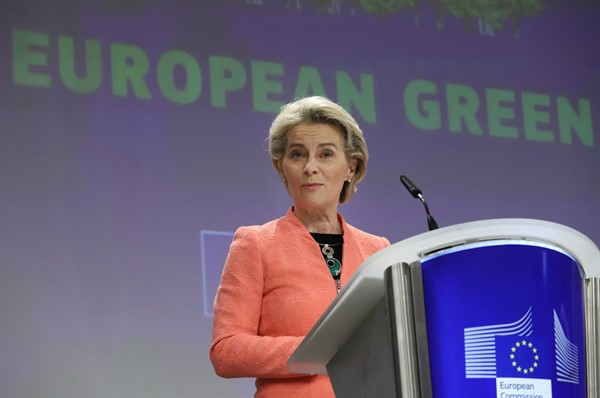Last week the European Commission seized global leadership on climate change, unveiling a sweeping scheme to reduce the EU’s carbon emissions by 55 percent from 1990 levels by 2030 and achieve “net zero” by 2050. Brussels envisions a total overhaul of the bloc’s economy, including eliminating the sale of new gas- and diesel-powered automobiles by 2035 and introducing border taxes to penalize imports from jurisdictions less committed to decarbonization.
The bloc’s bold move ramps up diplomatic pressure on the United States, China and other major emitters to respond in kind in the run-up to the Glasgow climate change conference. The ultimate fate of the commission’s proposal will depend on whether its carbon border adjustment scheme proves WTO-compatible; whether the heterogeneous, 27-member European Union maintains solidarity as it hammers out the plan’s details; and whether others in fact follow the bloc’s lead.
The EU is often described as an economic giant but a political pygmy. When it comes to climate change diplomacy, however, it is the world’s heavy hitter. In December 2019, the commission announced the European Green Deal, pledging to make Europe the first climate-neutral continent by 2050. That goal has since been codified in the European Climate Law, which enters into force this month.

